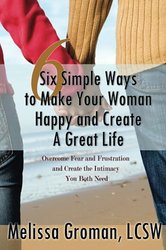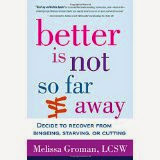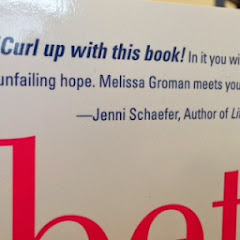
Sigh. If you sit where I sit, you would hear all about all the problems that social networking sites cause for people. Okay....I know, social networking sites don't cause problems, people cause problems...or something like that. But still.
I am a self proclaimed social network site failure. I cannot seem to get the simple hang of it. I am not entirely un-techy. I don't text, true, but I know my way around the web. But not social networking sites. I can't seem to get my settings right, my connections going, my message out. The more I think about it, the more I think that it is my unconscious mind protesting these sites based on all the pain and problems that I hear about in the office that are site related.
I know its great. I know its great for business, for attracting attention for services, books, products. I know its connective. I know you can reconnect to your friends from grade school, your great aunt Tilly, your sisters old boyfriend who you always liked. I know you can let everyone know how you are and hear about how they are (really?). I know that you can easily feel connected and in touch with hundreds, thousands, really, if you like. Its a whole world. I know you can chat and say hey, give a good word, make a contact, get a feeling, at any time, day or night, all day, all night, with everyone or anyone you like. I know your blackberry can buzz all day with the vital little dittys from folks who are your friends. I know you can guard your privacy, and not let everyone see everything. You can erase things you put up in a fit of rage or glee. (It may be viewed first, but you can undo it). You can enjoy people that you otherwise would not have such access to without having to take up too much time or energy.
I also know that all kinds of feelings get passed around which are not so clear, which are not so simple. I know you can defriend anyone at anytime. I know this sends a message to the defriended. I know you can go see your ex-love's page if you have not been defriended, just to be with him/her, just to feel like you are where they are, when you miss them so much. You can also spy on them. (I know, its not spying if its public info.) I know you can then compare your lousy aching insides to the gorgeous picture of your ex out with friends having the time of his/her life. You can then conclude that they have forgotten all about you and have happily moved on and you are no longer even a fleck of dust on their shoe.
I know that you can pop onto your partner's page just to say hello and see a photo of the office holiday party, where he said he only stayed a minute, that his coworker put on his wall, that has him laughing with a drink in his hand and his arm around his gorgeous office mate. I know that you can tell your boyfriend that you came right home after work and were late because of traffic and that he can log on and see that your best friend left a "thanks for stopping by today" message on your wall and he can wonder whats up with that? I know that your ex girlfriend who you swear you have not spoken to in over a year can write a hey, happy birthday, on your wall and have your new girlfriend wondering what the deal is. I know that high school girls can write some pretty neat hate messages, push a button and have 400 hundred people read all about it in one second flat, on the way to lunch. Cyber bullying is on the rise. Some say too bad and boo hoo, but not if its you. Not if its your kid.
I know that as much as we think we can read emails, text messages, tweets and wall postings objectively, we often read things through our own lenses of fear, suspicion, sensitivity, insecurity, or anxiety. Even our own desire can influence how we read things or see things online. If we want to pick a fight, we can find fuel. If we are used to feeling left out, we can find more proof to keep us in our painful, though maybe familiar place.
Yes, we can find trouble off line too, but more and more its a tech eat tech world. We live an increasing amount of our lives online, on text, on email. And I am a weary tech traveler.
Social networking, while fun and easy, has an underside. It has a dark side even. When we are missing someone we lost or pinning for someone we love but don't have, or are sitting with anger, frustration, jealousy or suspicion, it is almost impossible not to look, not to "spy" or see what someone is up to, or appears to be up to. The urge can be a compulsion, even for the non compulsed among us. We can have whole relationships with someones online persona, and feed self pity, hate, worry, longing, jealousy, anger, just from looking at site pages, walls and photos. We can go looking on purpose, over and over again, or stumble upon something that sets off a series of events that leads to break ups, bad feelings and trouble.
I am not a total skeptic. But I hear more and more about how much social networking sites are part of people's emotional lives. They add a new dimension to relationships, to accidental nicks and unconscious communication. Perhaps we just need to go carefully, that's all, and not ignore the obvious, that there really is no replacement for private direct communication, and that these sites, while fun, are not that.























